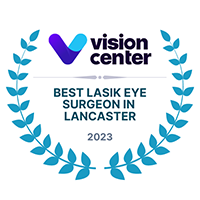Cataracts are the leading cause of blindness in the world: Currently, cataracts affect more than 22 million people in the United States that are above the age of 40. Worldwide there are more cataract cases than macular degeneration, glaucoma, and diabetic retinopathy combined according to Prevent Blindness America (BPA).
There are several symptoms of cataracts: When you first start experiencing the symptoms of cataracts they may only be affecting a small portion of your lens causing you to be unaware of the vision loss that you are incurring. As the cataract increases in size, this may result in side effects such as:
- Blurry, clouded vision
- Difficulty with night vision
- Sensitivity to light
- Seeing bright colors as faded or yellow
- Seeing double of things
If you are experiencing any of the symptoms listed above it is important to take the first step and schedule an appointment for an eye exam.
Surgery is the only proven treatment for cataract: As of right now, the only way to treat a cataract is by surgery. During this procedure, your natural, cloudy lens will be removed and replaced with an artificial, clear lens. The good news with this is that cataract surgery is an outpatient procedure. After surgery, you will be in a recovery area for around 30 minutes and then you will be released and able to return home the same day.
Cataracts surgery is extremely effective: Although surgery is currently the only option to treat cataracts, it was reported by the American Society of Cataract and Refractive Surgery (ASCRS) that the overall success rate of this procedure is 98 percent with over 3 million people undergoing this procedure every year.






